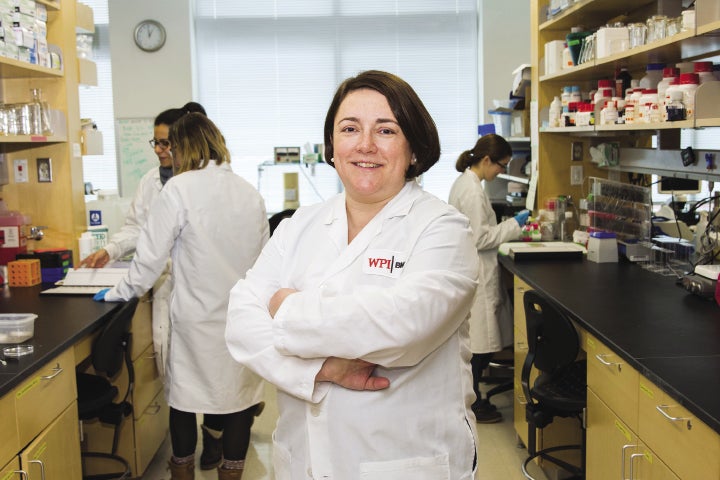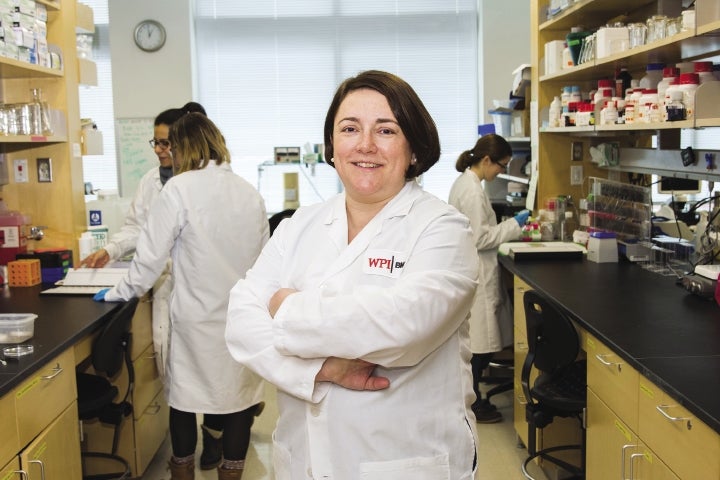To further accelerate biotech innovation and education, WPI joined BioConnects New England, a multi-institutional coalition spanning three states and founded to create a robust biotech industry by connecting resources and talent.
Get Instant Access to This Article
Subscribe to Worcester Business Journal and get immediate access to all of our subscriber-only content and much more.
- Critical Central Massachusetts business news updated daily.
- Immediate access to all subscriber-only content on our website.
- Bi-weekly print or digital editions of our award-winning publication.
- Special bonus issues like the WBJ Book of Lists.
- Exclusive ticket prize draws for our in-person events.
Click here to purchase a paywall bypass link for this article.
I clearly remember my first visit to the Worcester Polytechnic Institute campus in 2007 for my faculty interview. I was handed a hard hat and led on a tour of the Life Science and Bioengineering Center at Gateway Park, where new lab and office space was taking shape.

I have spent my career working in research buildings, but this space felt different. There were no walls between laboratories, no boundaries between academic disciplines, and a ground floor biotech incubator run by Massachusetts Biomedical Initiatives. It was a building designed for collaboration, and I couldn’t wait to move in.
Today, 15 years later, regional biotech growth is on a strong trajectory. Worcester is home to dozens of biotech companies and new biomanufacturing facilities are under construction at The Reactory in Worcester. Investments in research infrastructure and incubator spaces are hatching new ventures, creating cutting-edge cell and gene therapies to treat cancer, autoimmunity, and infectious disease.
To further accelerate biotech innovation and education, WPI joined BioConnects New England, a multi-institutional coalition spanning three states and founded to create a robust biotech industry by connecting resources and talent. BioConnects New England was inspired by the U.S. Economic Development Administration Build Back Better Regional Challenge, which aims to identify regional economic strengths for a post-pandemic future. The program aims to enhance job growth by closing gaps. Concurrently, new and scaled capacity in training programs will serve as on-ramps to prepare and connect job seekers to the growing number of biotech jobs. Fueled by regional biotech innovation hubs, and the need to onshore biomanufacturing of vaccines and medicines, these employment sectors are poised to have a strong future.
BioConnects New England is one of 60 organizations selected from more than 500 applicants to compete for Phase 2 of the Build Back Better Challenge. The finalists will be narrowed to between 20 and 30, who will be awarded between $25 million and $100 million.
BioConnects New England will move forward regardless of whether it receives a Phase 2 award. However, EDA funding would accelerate and expand its outreach exponentially.
The coalition’s success will depend on engagement within urban and rural communities that have not traditionally had access to high-tech jobs and training. Collectively, we will harness the deep and diverse talent pool that is one of Worcester’s greatest strengths.
With its geographic and industrial positioning, Worcester is ready for this moment. As a proud member of the Worcester community, WPI is excited to take its place as a leading regional member of this coalition.
Marsha Rolle, Ph.D., is a professor of biomedical engineering at Worcester Polytechnic Institute.

